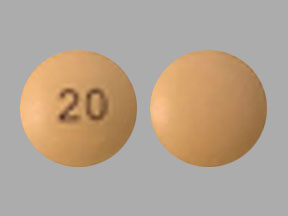Rabeprazole Disease Interactions
There are 4 disease interactions with rabeprazole.
PPIs (applies to rabeprazole) C. diff
Major Potential Hazard, Moderate plausibility. Applicable conditions: Pseudomembranous Colitis, Diarrhea
Published observational studies suggest that proton pump inhibitor (PPI) use may be associated with an increased risk of Clostridium difficile-associated diarrhea (CDAD), especially in hospitalized patients. This diagnosis should be considered for diarrhea that does not improve. It is recommended that patients should use the lowest dose and shortest duration of PPI therapy appropriate to the condition being treated. Close monitoring is recommended in patients with diarrhea and in those taking antibacterial agents as CDAD has been reported with the use of nearly all these agents. Treatment with antibacterial agents alters the normal flora of the colon, leading to overgrowth of C. difficile. C. difficile produces toxins A and B, which contribute to the development of CDAD. Appropriate fluid and electrolyte management, protein supplementation, antibiotic treatment of C. difficile, and surgical evaluation should be instituted as clinically indicated.
Proton pump inhibitors (applies to rabeprazole) bone fractures
Moderate Potential Hazard, Moderate plausibility. Applicable conditions: Osteoporosis
Various published observational studies have reported that PPI therapy may be associated with an increased risk for osteoporosis related fractures of the hip, wrist or spine. The risk was increased in patients who received high doses (multiple daily doses), and long term treatment (a year or longer). Patients should use the lowest dose and shortest duration of PPI therapy appropriate to the condition being treated. Caution should be used in patients at risk for osteoporosis related fractures and should be managed according to established treatment guidelines.
Proton pump inhibitors (applies to rabeprazole) hypomagnesemia
Moderate Potential Hazard, Moderate plausibility. Applicable conditions: Magnesium Imbalance
Symptomatic and asymptomatic hypomagnesemia has been reported rarely in patients treated with PPIs for at least 3 months, in most cases after a year of therapy. Serious adverse events can include tetany, seizures, and arrhythmias. Caution should be used in patients prone to magnesium imbalances such as patients taking other medications that can cause hypomagnesemia (e.g., diuretics). Regular monitoring is recommended.
Rabeprazole (applies to rabeprazole) liver disease
Moderate Potential Hazard, Moderate plausibility.
Rabeprazole is primarily metabolized by the liver. Although the drug is generally well-tolerated, therapy with rabeprazole should be administered cautiously in patients with severe liver disease because of the lack of clinical data concerning its use in such patients. Dosage adjustments are not necessary in patients with mild to moderate hepatic impairment.
Switch to professional interaction data
Rabeprazole drug interactions
There are 191 drug interactions with rabeprazole.
More about rabeprazole
- rabeprazole consumer information
- Check interactions
- Compare alternatives
- Pricing & coupons
- Reviews (85)
- Drug images
- Side effects
- Dosage information
- During pregnancy
- Drug class: proton pump inhibitors
- Breastfeeding
- En español
Related treatment guides
Drug Interaction Classification
| Highly clinically significant. Avoid combinations; the risk of the interaction outweighs the benefit. | |
| Moderately clinically significant. Usually avoid combinations; use it only under special circumstances. | |
| Minimally clinically significant. Minimize risk; assess risk and consider an alternative drug, take steps to circumvent the interaction risk and/or institute a monitoring plan. | |
| No interaction information available. |
See also:
Further information
Always consult your healthcare provider to ensure the information displayed on this page applies to your personal circumstances.


